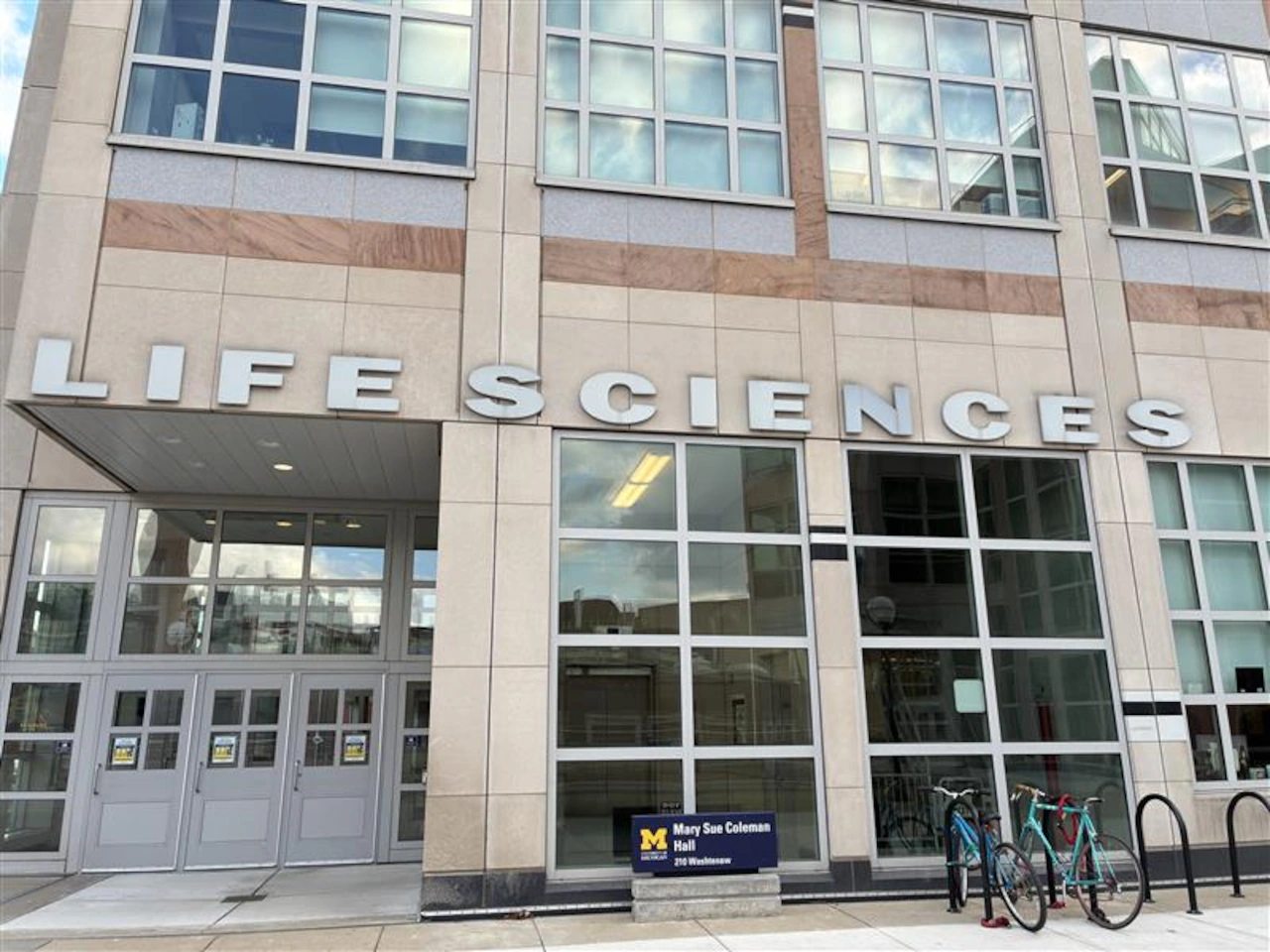Copyright M Live Michigan

ANN ARBOR, MI – Federal charges filed against three more people in a University of Michigan smuggling case are fueling fire for activists concerned the scrutiny is unfairly persecuting Chinese scholars and exacerbating xenophobia against international students at large. Linda Wan, a UM alumna and Ann Arbor resident, called all the charges “an incredible waste of time and human resources.” “Not to mention that my biggest concern is that it really poisons U.S. and American relations,” she said. “And it really destroys the comfort, the feelings of safety that Chinese students and scholars feel when working with, studying with, interaction with American universities. This is a very, very dangerous slippery slope.” Xu Bai and Fengfan Zhang are each charged with conspiracy to smuggle goods into the country. They’re alleged to be the recipients of several packages related to research of nematodes, a type of roundworm, according to a Nov. 4 criminal complaint filed in U.S. District Court in Detroit. Another person, Zhiyong Zhang, was charged with giving false statements. All three are Chinese nationals in the U.S. on a J-1 visa through UM and working in the same sensory biology lab. The latest slate of accusations follows three other Chinese scholars first charged. They include Chengxuan Han, who pleaded no contest to smuggling charges in sending the packages. She was sentenced last month to time served and deported. “What we believe is that they’re trying to retry the Han case, and it just...” Wan said pausing mid-interview early Thursday, Nov. 6. An organizer for CODEPINK, a national women-for-peace nonprofit, Wan and other advocates delivered a petition to UM officials this summer demanding they defend Chinese scholars against federal allegations. Now, she said the new charges have left them “scratching our heads,” as they believe the outcome of Han’s case discredited the validity of federal authorities’ allegations when she did not receive the years-long sentence that her peers now face. Two others were also charged around the same time. UM spokesperson Kay Jarvis confirmed the university recently terminated Xu Bai, Fengfan Zhang, and Zhiyong Zhang, but provided no comment related to the charges. Representatives from the U.S. Attorney’s office and the consulate general to the Chinese embassy did not return requests for comment. Activists like Wan following issues related to UM have raised concerns about the chilling effect federal attention will have on international students and scholars and the work they do, particularly under President Donald Trump. Scrutiny of UM has taken shape in other ways this year, as the U.S. Department of Education opened an investigation this summer into the university’s foreign funding — another weight on the scales after high-profile federal criminal investigations involving the Chinese scholars. Activists have characterized the affected Chinese scholars as experts in their field whose work is marred by federal allegations, mirroring what defense attorneys have said in court. In a September sentencing memo, a lawyer called Han a “well-meaning, hard-working academic” rather than a “Chinese operative” wrapped in what federal authorities said in a release this summer was “an alarming pattern that threatens our security.” Talking about the Nov. 4 charges, Wan extended the sentiment. The three impacted worked in a UM lab operated by researcher Shawn Xu. UM conducted an internal investigation into the lab, which was still up and running as of this week. David Nacht, Xu’s attorney, said Xu is the principal lab investigator and “wants to keep running his lab.” He added that Xu will comply with guidelines, especially in his employment and hiring practices. He will not change his practices because he “doesn’t want to discriminate” and keep his lab open to researchers of various backgrounds. Xu’s lab follows UM hiring and employment guidelines, Nacht said, emphasizing Xu’s innocence. Federal agents, he said, have not searched or lodged direct charges against Xu. Nacht said Xu is hopeful the university and federal government will act in accordance with the law and he believes in the American justice system. Xu has lived in the country for decades and studies worms, which come from Minnesota, for his research, according to Nacht. Xu’s lab sits in the Life Sciences Institute, 210 Washtenaw Ave., a multi-story research building on UM’s campus. Pedestrians passing campus can see researchers in the labs through the windows, and the higher levels of the building require ID access. Han was pursuing a doctorate with the Huazhong University of Science and Technology in Wuhan when she came to the U.S. and was later charged. She was accused of sending packages with biological material in 2024 and 2025. Post-doctoral fellow Yunqing Jian and Jian’s boyfriend Zunyong Liu were arrested last year on federal charges unsealed in June as part of an alleged conspiracy to defraud the U.S. and smuggle a biological pathogen into the U.S. Jian, who received a doctorate in plant pathogens from Zhejiang University and funds from a foundation with backing from the Chinese government, was conducting research on a fungus called Fusarium graminearum. Federal authorities cited the pathogen as the cause of “head blight,” a disease that can devastate crops like wheat, barley, maize and rice and called it an agroterrorism weapon. Since then, Jian has been brought up on lesser charges just related to smuggling. She still faces up to 20 years in prison. CODEPINK activists push back on the broader implication alleged — that the scholars had any larger aims to weaponize the material they reportedly shipped. Wan said activists are continuing their advocacy for Jian, who she called a “respected scholar in her field.” Efforts include an ongoing letter-writing campaign that ends Nov. 16 to urge UM officials to end their silence and “protect international students from political persecution.” Joshua Webb, a Portland activist who works with local CODEPINK members, is a recent graduate of Oregon State, where he studied mycology and plant pathology, and spoke virtually last week about Jian. Webb has also closely followed other UM issues, recalling on Wednesday the end of the university’s partnership with a Shanghai institution toward the start of Trump’s second term. Both Webb and Wan said they feel UM officials are still bending to federal demands, and Webb, who’s third generation Japanese, said he understands the impact that may have for the international community of scholars in Ann Arbor. “In the bigger scheme of things, the University of Michigan is being centered in this push … to further demonize China, to go past a cold war to a hot war with China,” he said. “And they’re spouting these cases off wherever they can (as) reasons to convince the public that we should be concerned about this. That also endangers University of Michigan students. It endangers all Asian Americans. It endangers anybody here from a foreign nation.”



